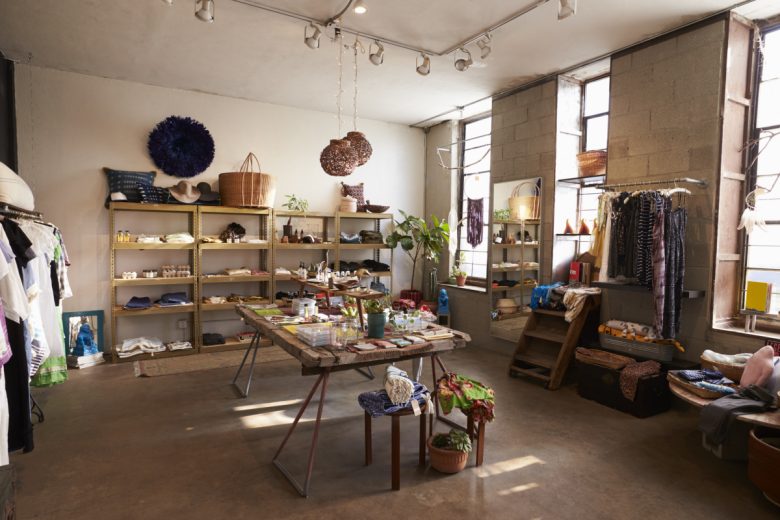With the popularity of online shopping, many people have questioned whether brick-and-mortar businesses can still compete with online models. Starting a traditional business that involves a physical location, to many, seems unnecessary and sometimes risky.
For decades, many predicted that physical retail business model would be obsolete. Replaced by internet-based business model retailers. However, it seems like the opposite is happening as brick-and-mortar stores have seen a resurgence this decade. The US Department of Commerce Retail Indicator Division reported that retail sales have increased 17.9% over the previous year. Another report from Forrester reveals that 72% of all retail sales in 2024 will take place in brick-and-mortar stores.
It seems there are still many benefits of having a physical location for certain types of companies and industries. In this article, we will look at some of the major advantages and disadvantages of the brick-and-mortar business model.
What is a Brick-and-Mortar Business Model?
The Brick-and-mortar business model is a type of business model that involves having a physical location where customers can come in person to purchase products or services. This model has been used for hundreds of years. This type of business aims to draw in as many customers as possible so they can sell their goods and services. Brick-and-mortar businesses are popular because they provide consumers with an experience that is not available online.
While there are other business models to choose from, the brick-and-mortar business model is a top choice for business owners who want to interact with customers in-person and think they can sell more products by showcasing them.
Does the Brick-and-Mortar Business Model Work?
The brick-and-mortar business model is most suitable for companies that sell products that are better experienced in-person or received immediately. For example, mattress sales have increased online, however, many people still prefer to go to a physical location. This way, they can see and test the product in person before they buy. This is also true for items such as foods and snacks that are sometimes spur-of-the-moment purchases.
A brick-and-mortar business is also ideal if you want to sell products online but also want to give your customers the option of making in-person purchases. For example, if you want to start an online store selling clothes and shoes, you have the opportunity to open a physical location where your customers can come and make purchases. You will be able to reach more customers in a central, physical location. This is because you may get customers who happen to see your shop while driving down the street or shopping in the same shopping plaza where your store is located.
Similarly, if your company needs to be mobile, the brick-and-mortar business model might not suit you. Let’s say you own a popular food truck; this means that your employees must go out and prepare food in areas of the city at various points throughout the day or week. There’s no need to have a brick-and-mortar business model if your food truck is already doing well. Switching to the brick-and-mortar business model can cut into profit.
Advantages of the Brick-and-Mortar Business Model
While the online business model is often seen as less risky and more scalable, brick-and-mortar businesses still boast several advantages that make them viable.
- With a physical location you are able to have face-to-face interaction with customers. This allows for greater relationship building which leads to customer loyalty.
- You better legitimize your brand. Having a physical location gives your customer more piece of mind when purchasing. Instead of being a website that they found on Instagram, your physical location gives customers more security knowing that they can go back to your location if they are not happy with their purchases.
- It establishes a physical presence in the communities. Having a community presence can be useful for getting your company out there, especially if you’re trying to attract new customers or increase sales from existing ones.
- Consumers are happy to get their products quickly. They don’t have to wait for shipping to get what they need. Plus, if you’re selling products typically sold online (such as books), setting up a physical store may give you an advantage over your competitors.
Disadvantages of the Brick-and-Mortar Business Model
While there are many benefits to having a physical store, there are also some drawbacks.
The disadvantages of a brick-and-mortar business model include:
- Operating a physical store requires high costs, including staffing, inventory, marketing, and other expenses.
- Brick-and-mortar businesses are limited by the size of their physical footprint. Physical stores have a finite amount of space and can only accommodate so many products. You may also need to hire employees, which adds to your overhead costs.
- With a physical store, you must maintain a constant flow of customers to keep your business profitable. Maintaining a constant flow can be challenging because it’s difficult to predict how many customers will visit your store on any given day.
- There are higher maintenance costs. The state of a store’s appearance and facilities is extremely important when providing customers with good service.
- A business’s appearance reflects its owner’s attention to detail. The appearance matters whether the business provides services in someone else’s home or on their premises.
- Business owners must pay for property, liability, and other types of coverage to keep their companies running smoothly.
- Marketing strategies for a brick-and-mortar business can also be challenging since the goal is to purchase in-store.
Conclusion
The brick-and-mortar business model is a great way to start your business. However, it does come with its own set of challenges. It is important to plan the right location for your store and ensure that you have enough funds to cover all costs associated with opening a shop.












Pingback: 7 Issues to Know Earlier than Opening a Second Location for Your Enterprise - The Owl Report
Pingback: 10 Businesses You Can Run From a Laptop - StartUp Mindset
Pingback: What is a Hybrid Restaurant Business Model and How Does it Work? - StartUp Mindset
Pingback: 4 Main Target Markets for a Candle Business - StartUp Mindset
Pingback: The Advantages and Disadvantages of the Ecommerce Business Model - StartUp Mindset
Pingback: The Ghost Kitchen Business Model Explained - StartUp Mindset
Pingback: 10 Companies that Failed to Innovate and Paid Dearly for It - StartUp Mindset
Pingback: 10 Companies that Failed to Innovate and | Biz Builder Mike
Pingback: How to Walk Away from Your Job and Become an Online Freelancer - StartUp Mindset
Pingback: 7 Goals for a Food Truck Business - StartUp Mindset
Pingback: Everything You Wanted to Know About Online Enterprise and Were Afraid To Ask ·
Pingback: Advantages and Disadvantages of the Brick-and-Mortar Business Model – Joseph O'Dierno Buffalo
Pingback: 3 Reasons Why Brick and Mortar Stores Will Never Go Out of Style - StartUp Mindset